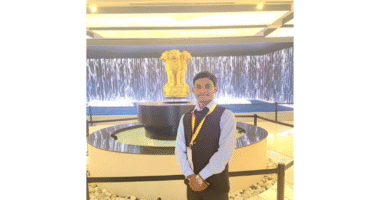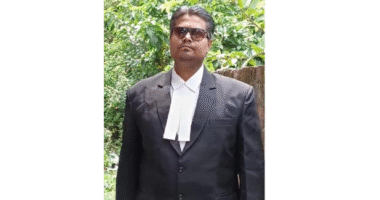Indore, Madhya Pradesh | August 7, 2025 — | Hospital Receptionist
In a deeply disturbing development that has sent shockwaves across Indore, a woman identified as Manisha Saket alias Divya Bharti, working as a receptionist in a private hospital, has come under intense legal scrutiny after a fraud and extortion case took an alarming turn. A local resident, Pankaj Hukamchand, who filed a complaint under Section 420 of the Indian Penal Code, is now facing alleged intimidation tactics to withdraw his case — allegedly orchestrated by Manisha and a trio of accomplices.
This high-profile case, currently under investigation at Aerodrome Police Station, has gripped public attention not just for its financial implications but for the emerging network of intimidation and deception that threatens to expose a deeper, potentially widespread financial racket.
The Origins of the Case
In August, Pankaj Hukamchand filed a criminal complaint against Manisha, claiming she had borrowed ₹2,00,000 under the pretense of urgent need but failed to return the money despite repeated reminders. When peaceful resolution efforts proved futile, Pankaj pursued legal recourse. The complaint, which was initially a straightforward financial fraud allegation, has since snowballed into a disturbing tale of coordinated threats, manipulation, and organized intimidation.
The Intimidation Attempt
As the legal proceedings began gaining momentum and appeared to favor Pankaj, the case took a dark and unexpected turn. Pankaj alleged that Manisha began pressuring him to withdraw the case, enlisting the support of Rahul Panjwani, Danish Khan, and Lokesh Kothre — all of whom now face criminal charges alongside her.
According to the complaint, the trio confronted Pankaj indirectly through a threatening phone call, believed to be initiated shortly after a meeting between Manisha and her associates. The call, which came soon after their conversation at Bhatia Mobile Shop at Tower Square, was the tipping point that led Pankaj to file a fresh complaint of criminal intimidation.
Bhatia Mobile Shop: A Nexus of the Accused?
Further investigations revealed that Rahul Panjwani, a known associate of Manisha, allegedly coordinated with Danish Khan (a mobile technician at the shop) and Lokesh Kothre. The shop is reportedly operated by Yash Bhatia, who, according to sources, assisted in securing bail for all accused. Authorities are now examining whether the mobile shop served as a communication hub for executing this series of intimidation efforts.
Mounting Allegations and Financial Misconduct
Even as this case gains public and media attention, deeper layers of financial misconduct are being unearthed. Several witnesses and hospital patients have stepped forward, alleging that Manisha borrowed money from multiple individuals under false pretenses and routinely used threats to silence repayment demands.
Police officials suspect that the accused may be part of a broader syndicate operating in Indore, with potential links to other such financial frauds involving vulnerable individuals, including patients in need of medical care. The involvement of Manisha’s associates in these emerging complaints is also being actively investigated.
Police Action and Legal Developments
In light of these mounting allegations, the Aerodrome Police acted swiftly to register an FIR against Manisha, Rahul Panjwani, Danish Khan, and Lokesh Kothre. All four accused are presently out on conditional bail, and the investigation is ongoing.
Law enforcement agencies have confirmed that electronic surveillance, call records, and financial transaction trails are being thoroughly examined to trace the movement of funds and understand the coordination between the accused.
A senior police official, speaking on condition of anonymity, confirmed:
“If the preliminary evidence holds, this may open up one of the most shocking cases of patient-targeted fraud and organized coercion in recent memory.”
A Call for Accountability and Vigilance
This case highlights the pressing need for background checks and stronger accountability mechanisms within private hospitals, particularly concerning staff members who have access to sensitive information and interact directly with vulnerable patients.
What Lies Ahead
As the public watches closely, the Indian judiciary and law enforcement have a critical role to play in ensuring that this case does not fade into bureaucratic limbo. If proven guilty, the accused may face serious penal consequences under multiple sections of the IPC, including fraud, criminal intimidation, conspiracy, and possibly even violations under the IT Act if digital evidence confirms involvement.
In the meantime, whistleblowers and victims are encouraged to come forward and assist the investigation.









